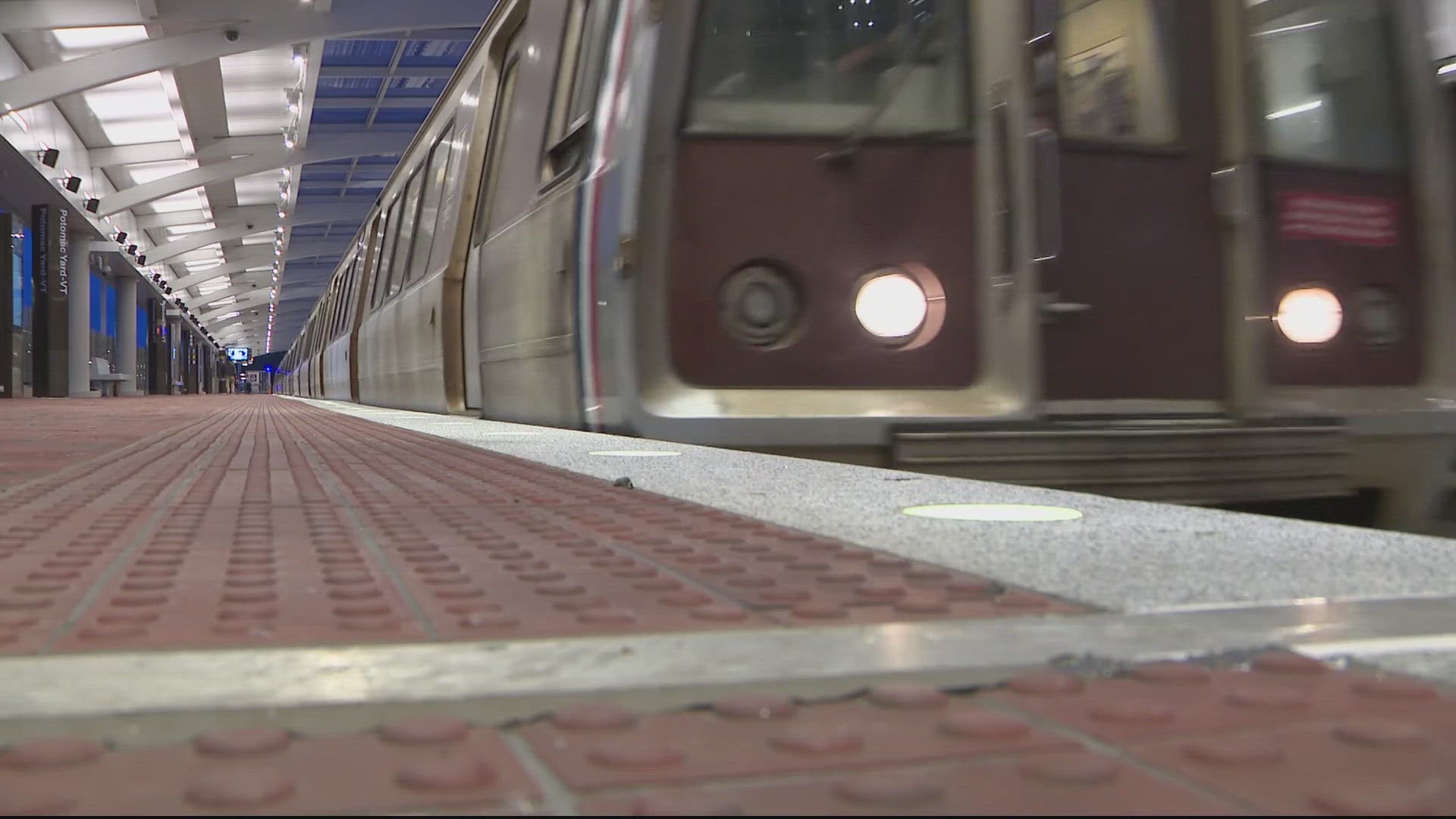WASHINGTON — Metro says it has begun replacing all the wheels on its 7000-series trains. It's the first step to returning more of the train cars to service following a Blue Line derailment in 2021. The plan is to gradually add more 7000-series trains to service, with the first railcars going into passenger service Monday.
Metro says the replacements will bring the entire 7000-series fleet up to new, improved standards. Under the new process, Metro will increase the fit and press tonnage used to mount the wheels to axles on the railcar.
After 20,000 miles in service, Metro says it will perform additional inspections, wheel measurements and engineering analysis before the trains return to the standard periodic inspection intervals.
The earlier derailment and investigation led to a shortage of 7000-series cars in service. Since then, Metro has been relying on its oldest and least reliable railcars in its legacy fleet.
As more 7000-series railcars are completed, tested and able to run longer between inspection intervals, Metro will gradually be able to increase the number of 7000-series trains in service, Washington Metropolitan Area Transit Authority said.
What does the process of replacing wheels look like? Metro says its exhaustive and requires specialized equipment and significant training.
"Unlike changing the tires on a car, the entire wheel assembly or truck, including the axle, frame and two wheels must be removed from the railcar, similar to removing the entire front end of a vehicle," Metro explained in a press statement.
Under the current return to service plan, Metro continues to inspect 7000-series railcars at 30-day intervals, limiting the number of 7000-series trains that can operate due to the frequency of inspections.
Once the wheel pressing process and training ramps up, Metro expects to complete approximately 20 cars a month. With 748 railcars, including 5,984 wheels on 2,992 axles, it is expected to take several years to return the entire fleet to normal service at an estimated cost of $55 million.
“We appreciate the tireless efforts of our safety and maintenance teams to develop this process to ensure we can safely return more 7000-series railcars to service, which are the newest and most reliable in our railcar fleet,” said Metro General Manager and Chief Executive Officer Randy Clarke. “It will take an extensive amount of work over the next few years, but as we begin to have more 7Ks available, customers will begin to see even more improvements in reliability and service.”
Metro developed the plan to press wheels on the 7000-series fleet at a higher standard following extensive engineering and data analysis and based on a technical report issued by the National Transportation Safety Board (NTSB) citing engineering experts who identified a technical issue — microslip due to reduction in contact pressure — as a factor in the 7000-series wheel migration issue.
RELATED: Metro is rolling out automatic doors

